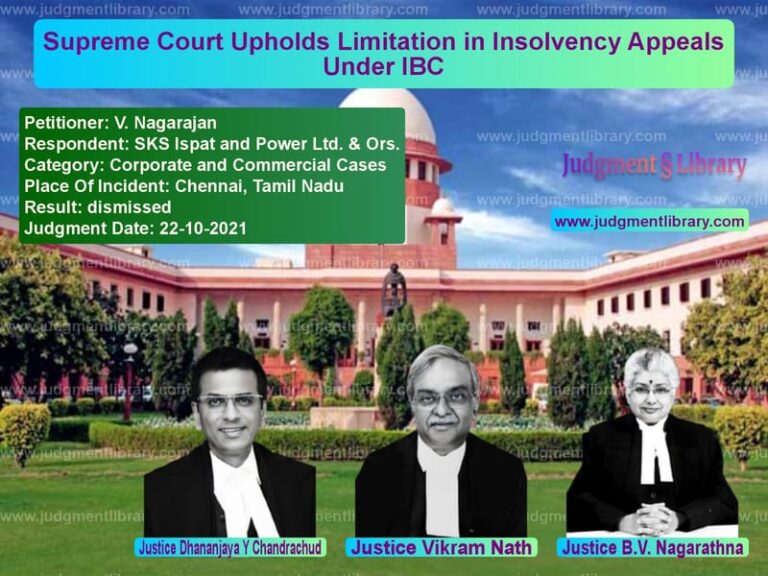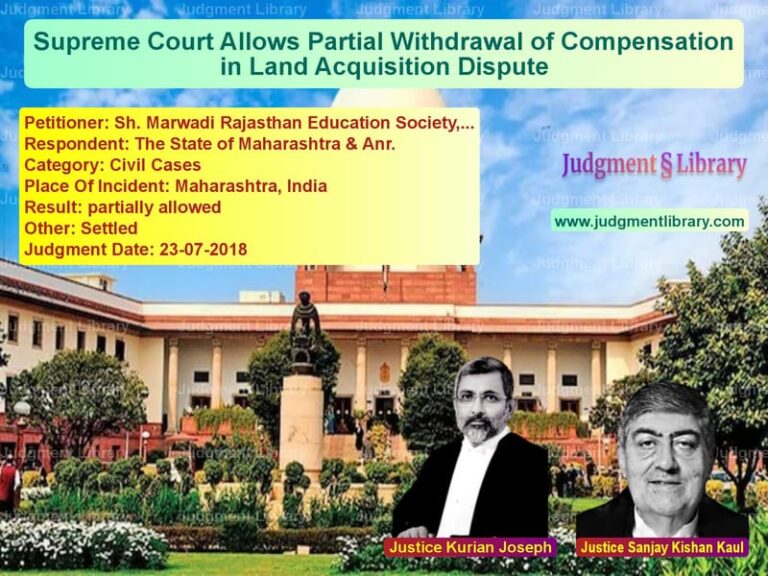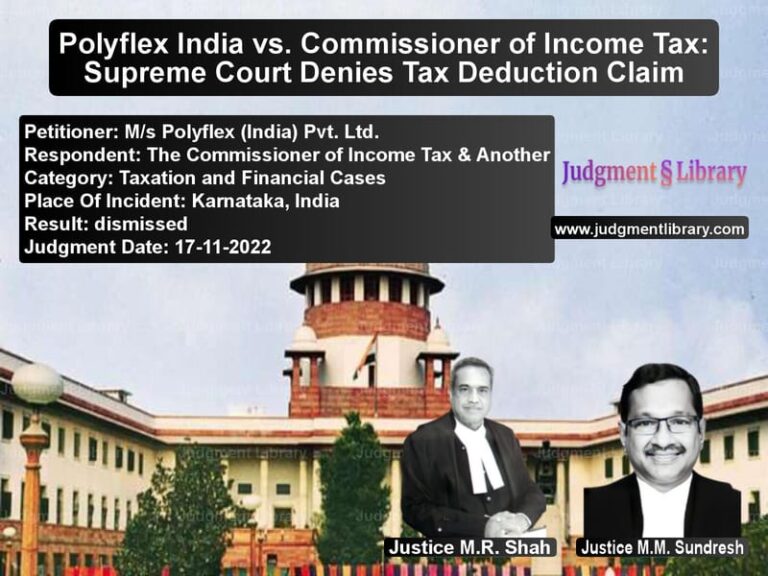Supreme Court Quashes FIR in Karnataka Cow Meat Case Due to Unauthorized Evidence Collection
The Supreme Court of India recently ruled on a case involving the illegal storage of cow meat in Karnataka, where the prosecution was challenged due to procedural irregularities in evidence collection. The judgment, delivered by Justices Abhay S. Oka and Ujjal Bhuyan, reaffirmed the principle that legal procedures must be strictly followed in criminal investigations.
Background of the Case
The case involved an appeal by Joshine Antony, who had originally complained about the illegal storage of cow meat in a godown owned by respondents Asifa Sultana and others. The appellant, claiming to be an Honorary Animal Welfare Officer, reported the case to Dr. Omkar Patil, Assistant Director of the Veterinary Department, leading to the registration of an FIR.
Initially, the police registered the case under Sections 420 and 429 of the Indian Penal Code (IPC). Later, they added charges under Sections 4 and 5 of the Karnataka Prevention of Cow Slaughter and Cattle Preservation Act, 1964. However, the High Court of Karnataka quashed the FIR under Section 482 of the Criminal Procedure Code (CrPC), prompting an appeal to the Supreme Court.
Arguments by the Appellant
The appellant contended that a large quantity of cow meat had been found in the respondents’ cold storage and that the High Court had prematurely intervened in the case before the investigation could proceed. He argued that there was clear prima facie evidence showing that the stored meat was indeed cow meat, based on a DNA test.
He further pointed out that the meat was misleadingly labeled as “Super Fresh Frozen Boneless Buffalo Meat,” which justified the application of Section 420 IPC (cheating). Additionally, he argued that the Veterinary Department’s Assistant Director was duly authorized under Section 10 of the 1964 Act to inspect the premises and collect samples.
Defense by the Respondents
The respondents’ counsel argued that the evidence collection was unauthorized. They pointed out that under Section 10 of the 1964 Act, an authorized officer had only the power to enter and inspect premises but not to seize samples. They further contended that the sample was collected without notifying the accused, making it inadmissible in court.
Supreme Court’s Ruling
The Supreme Court upheld the Karnataka High Court’s decision to quash the FIR, ruling that the prosecution was based on illegally obtained evidence. The key findings of the Court included:
- The Assistant Director of the Veterinary Department had no authority under the 1964 Act to collect meat samples.
- The collected sample was sent for DNA testing without following proper legal procedures, making it inadmissible.
- The police, despite conducting an inspection, did not independently collect a sample for analysis, relying solely on the unauthorized sample.
- The entire case rested on an illegally obtained sample, which was a serious procedural lapse.
The Court emphasized:
“The act of collection of sample by the Assistant Director was completely illegal. It is this sample which was sent for chemical analysis. Thus, the entire case of the prosecution is based on unauthorizedly and illegally collected sample of the meat.”
As a result, the Supreme Court dismissed the appeal, affirming that the High Court was correct in quashing the FIR.
Legal Implications
This ruling reinforces the fundamental principle that evidence must be collected strictly per legal provisions. It serves as a precedent ensuring that investigative authorities adhere to due process before initiating criminal prosecutions.
Conclusion
The Supreme Court’s decision highlights the critical role of procedural fairness in criminal cases. By quashing the FIR, the Court reaffirmed that investigations must be conducted lawfully, ensuring that prosecutions are based on admissible and legally obtained evidence.
Petitioner Name: Joshine Antony.Respondent Name: Smt. Asifa Sultana & Ors..Judgment By: Justice Abhay S. Oka, Justice Ujjal Bhuyan.Place Of Incident: Karnataka.Judgment Date: 20-02-2024.
Don’t miss out on the full details! Download the complete judgment in PDF format below and gain valuable insights instantly!
Download Judgment: joshine-antony-vs-smt.-asifa-sultana-&-supreme-court-of-india-judgment-dated-20-02-2024.pdf
Directly Download Judgment: Directly download this Judgment
See all petitions in Fraud and Forgery
See all petitions in Bail and Anticipatory Bail
See all petitions in Judgment by Abhay S. Oka
See all petitions in Judgment by Ujjal Bhuyan
See all petitions in dismissed
See all petitions in Quashed
See all petitions in supreme court of India judgments February 2024
See all petitions in 2024 judgments
See all posts in Criminal Cases Category
See all allowed petitions in Criminal Cases Category
See all Dismissed petitions in Criminal Cases Category
See all partially allowed petitions in Criminal Cases Category







